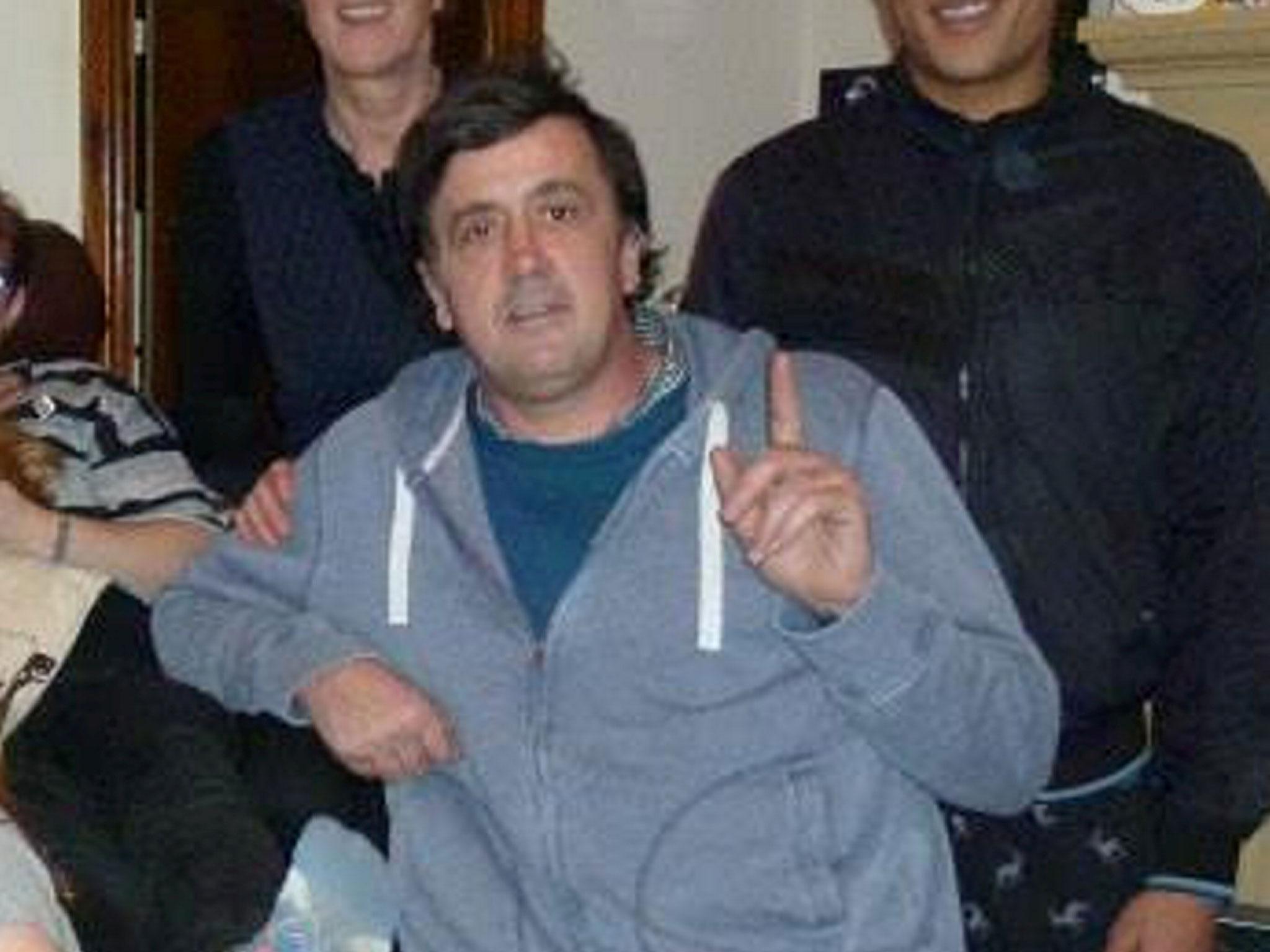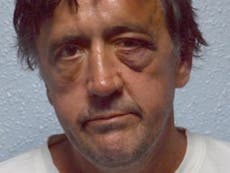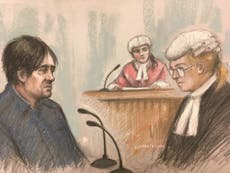I’m a worshipper at Finsbury Park Mosque, and here’s what Darren Osborne’s attack taught me about radicalisation
Osborne's version of Britishness is as unaccommodating of Muslims as the Manchester attacker Salman Abedi's Islam was of Britishness

Hearing the guilty verdict against Darren Osborne, after court witnesses recounted how he “wouldn’t stop smiling” after driving his van into innocent worshippers outside Finsbury Park Mosque last year, it’s difficult to feel anything but pained.
I prayed regularly at the Finsbury Park mosque, just a few hundred yards up the road. That Ramadan night when Osborne’s van ploughed into my co-worshippers, in an attempt to kill them, I was fortunate enough to be at home in bed.
I have lived in and around Finsbury Park for seven years now – exactly the time I’d spent in Manchester having first arriving there as a student. That both my adopted homes should have faced terror attacks in 2017 made it a strange and terrible year: not only as a Muslim living in London, nor due to the many happy memories I hold of Manchester, but because both attacks so deliberately targeted those of us who presume our commonly lived experience is of a society in which we are all mutually invested. While the attacks tell us about the frustrations of those angry men who refuse to share this ideal, it speaks of our own failures to develop and articulate a shared and inclusive identity too.
The great mystery of all home-grown extremism, it seems to me, is this: why would anyone seek to attack the very same country that birthed and raised them?
I’ve been trying to get under the skin of that question for some time. Indeed, it was the Park Theatre, in Finsbury Park itself, which staged my twin plays Hurling Rubble at the Sun and Hurling Rubble at the Moon two summers ago, both exploring different trajectories into violent radicalisation: one focused on a young Muslim who blew himself up on a London bus in Tavistock Square on 7/7, the other on his schoolmate who ends up in the BNP. To explore the dynamic by which these two extremisms feed off each other, I’d interviewed former members of the banned Islamist organisation Al-Muhajiroun and ex-members of the far-right BNP. Their insecurities echoed one another. While one spoke of the confusion felt as a result of being ‘othered’ in both Bangladesh and London, the other spoke of a crumbling of old communities and feelings of exclusion from newer ones settling in their place.
What made Salman Abedi’s attack in Manchester so heinous was not just that his target was a city beloved to me, but rather its violent assertion that Britishness was somehow inherently antagonistic to Islam. The brutality demonstrated by Darren Osborne in Finsbury Park was, too, a violent insistence that neither Islam nor its adherents had any place in Britain. Yet couldn’t help feeling that the Manchester attack was particularly tragic because its perpetrator unfurled his rage at the inhabitants of his own city and home.
The motives for these attacks have since been picked over by analysts and commentators. Labour leader Jeremy Corbyn maintains that Britain’s foreign policy has an important part to play in motivating terrorist ambitions amongst young people. Others see the shift from Al-Qaida to ISIS as a new version of Islamist extremism, motivated more by an ideological assertion of global dominance than by foreign policy grievances.
Whatever the global motivations, the drivers of this extremism must also lie closer to home too. For someone to be prepared to kill their neighbours and co-citizens, as part of a greater gesture against the condition of their country, their sense of identity and belonging must be a fraught source of aggrieved personal conflict.
This is as relevant for Darren Osborne as it is for Salman Abedi. While the latter may have had no relationship with Britishness at all, Osborne’s narrow and restrictive identity sits at the core of his perverted ideology. His version of Britishness is as unaccommodating of Muslims as Abedi’s Islam was of Britishness. In this light, public voices exacerbating claims of incompatibility – that Britain is somehow incapable of including Islam or Muslims – seem to me to have contributed to the climate that could trigger the Finsbury Park attacker, just as extreme Islamist preachers of hate seek to legitimise views that can lead to violence.
The vast majority of Muslims growing up in Britain never choose such warped methods of expressing any identity crises, just as most white Britons, adjusting to our multi-ethnic status quo, do not join the violent far right fringe. Many are capable of navigating this new terrain for themselves, discovering an identification with Britain that works for them. Yet given how important this process is for the stability and security of our society, it’s striking how little attention it receives from governments. Redressing this neglect is critical. We cannot talk about a vision of integration if it is not capable of fostering a shared identity that can include us all equally.
Some of us naturally find that we cherish each successive layer of identity that we come to absorb. Growing up in Blackburn, I found I could combine my Muslim faith, South Asian ethnicity and British nationality, despite the town’s stark social divisions down ethnic lines. Nevertheless, we do live in a society where there are identity gaps to fill. I’ve worked recently for British Future on projects to tell the little-known story of the 400,000 Muslims who fought for Britain in the First World War. Whether working with white British teenagers or their Asian counterparts, I was struck by the depth of feeling with which participants responded. What will stay with me is the young British Pakistani in Birmingham who said: "I never knew about this. I feel I can walk taller in the street now".
There was no doubt at all this common heritage had expanded the very meaning of Britishness for him – but what mattered was that this sense of a surprisingly shared past had the same effect upon his white British peers too.
As we continue to steer ourselves through the most ethnically and religiously diverse society probably in history, we will need that commonly held identity, that glue by which to hold our society together. It may not always be the answer for those already radicalised by ideologies of violence and hate; but in this generation and the next, we need to understand how a shared identity is an essential antidote to extremism. That sense of shared belonging is the key to seeing ourselves as integral to the greater society of which we are part – and it is at the heart of what is missing when frustration or grievance hardens into murderous hate.
Avaes Mohammad is a teacher, poet and playwright. He previously worked for independent thinktank British Future






Join our commenting forum
Join thought-provoking conversations, follow other Independent readers and see their replies